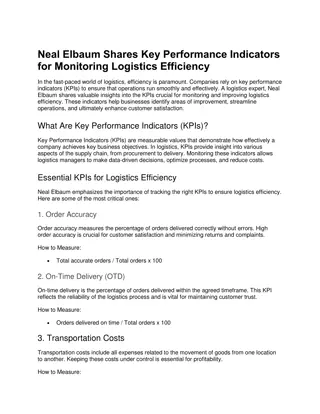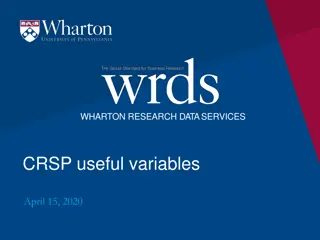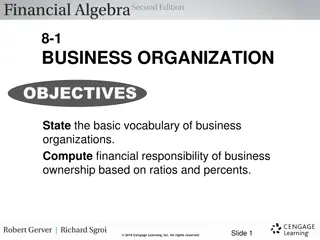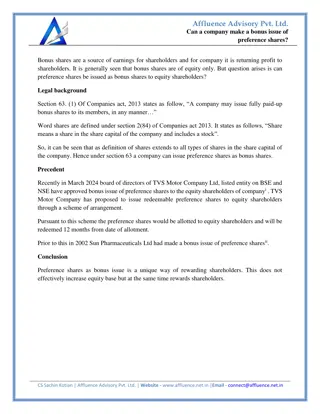
Understanding Company Law and Shares
Explore the concept of shares in company law, from the literal meaning to share certificates, registration, rights, and interests. Learn about equity shares, voting rights, and dividend rates associated with company shares.
Uploaded on | 0 Views
Download Presentation

Please find below an Image/Link to download the presentation.
The content on the website is provided AS IS for your information and personal use only. It may not be sold, licensed, or shared on other websites without obtaining consent from the author. If you encounter any issues during the download, it is possible that the publisher has removed the file from their server.
You are allowed to download the files provided on this website for personal or commercial use, subject to the condition that they are used lawfully. All files are the property of their respective owners.
The content on the website is provided AS IS for your information and personal use only. It may not be sold, licensed, or shared on other websites without obtaining consent from the author.
E N D
Presentation Transcript
The literal meaning of share is part or portion . But in the context of share- capital of a company share has a different meaning. It can be said that every part of joint capital of a company is a share , By acquiring the share of a company, any individual can become company s shareholder.
Movable Property Number Share Certificate Registration of Share Right and Interest
Moveable Property The share or other interest of any member if company is movable property and company. is transferable in the manner provided by the article of the company. Number Each share In the company having a share capital is distinguished by its appropriate number. Share Certificate Every shareholder is issued a certificate under the common seal of the company certifying the number of shares held by him . This is called share certificate.
Registration of Share The company maintain a register of its member in which the name, address, the number of share held, and the amount paid on each share by every holder of the company s share is recorded. Right and Interest A shareholder of the company has certain rights and interest and, at the same time, has certain liabilities. A share is not merely an amount of money; it is a right of holder which is measured in terms of money and constitutes certain rights and obligations.
An equity share, normally known as ordinary share is a part ownership where each member is a fractional owner and initiates the maximum entrepreneurial liability related to a trading concern. These types of shareholders in any organization possess the right to vote.
Equity share capital remains with the company. It is given back only when the company is closed. Equity Shareholders possess voting rights and select the company s management. The dividend rate on the equity capital relies upon the obtain ability of the surfeit capital. However, there is no fixed rate of dividend on the equity capital.
1. Authorized Share Capital: This amount an organization can issue. This amount can be changed time as per the companies recommendation and with the help of few formalities. 2. Issued Share Capital: This is the approved capital which an organization gives to the investors. 3. Subscribed Share capital: This is a portion of the issued capital which an investor accepts and agrees upon.
4. Paid Up Capital: This is a section of the subscribed capital, that the investors give. Paid-up capital is the money that an organization really invests in the company s operation. 5. Right Share: These are those type of share that an organization issue to their existing stockholders. This type of share is issued by the company to preserve the propriety rights of old investor. 6. Bonus Share: When a business split the stock to its shareholders in the form of dividend , we call it a bonus share 7. Sweat Equity Share: This type of share is allocated only to the outstanding workers or executives of an organization for their excellent work on providing intellectual property rights to an organization.
Preference shares, also known as preferred stock, is an exclusive share option which enables shareholders to receive dividends announced by the company before the equity shareholders. Preference shares provide the shareholders with the special right to claim dividends during the company lifetime, and also with the option to claim repayment of capital, in case of the wind up of the company.
Preferential dividend option for shareholders. Preference shareholders do not have the right to vote. Shareholders have a right to claim the assets in case of a wind up of the company. Fixed dividend payout for shareholders, irrespective of profit earned. Acts as a source of hybrid financing
1. Cumulative Preference Shares: Cumulative preference shares are those shares on which dividend is accumulated till it is fully paid. This means i.e., if the company is not in a position to pay dividend to the preference shareholders in a particular year, it will be paid of in the next year. 2. Non cumulative preference shares: Are those shares on which dividend does not accumulate i.e., if the company is not in a position to pay dividend to preference shareholders in a particular year, it will not carried forward to the next year.
3. Participating preference shares : These preference shareholders are eligible to participate in surplus profits besides preferential dividends. These shareholders participate in the prosperity of the business. The surplus profit which remains after the dividend payment to equity shareholders, is distributed to preference shareholders. 4. Non-participating preference shares: The preference shares are deemed to be non- participating, if there is no clear provision in Article of Association. They are entitled to only fixed dividends as decided at the time of issue.
5. Convertible preference shares: These shareholders have right to convert their preference shares into equity shares after certain period of time. 6. Non-convertible preference shares: These share can t be converted into equity shares during its tenure. They remain as preference shares only until they are repaid or redeemed. 7. Redeemable preference shares: These are those share which are redeemed after particular period along with their dividend . The period of redemption of such shares is determined at the of issue of shares itself.
PREFERENCE SHARE EQUITY SHARE The holder of these share have the first right to receive the dividend. The shareholder have first right to receive the return capital in case of winding up the company. The rate of dividend is defined, at the time of allotment. The rate cannot be increased- even if the company makes extraordinary profit Dividend is paid if the part of profit remains after the holder of preference share have been paid The shareholder are returned the capital after has been returned to preference share holder the rate of dividend is not defined. The rate can be more if the company makes good profit; it can be less or there can no dividend, if the company makes less profit or doesn t make any profit.
Deferred shares are sometimes also called as Founders shares or promoters shares which are usually allotted to the promoters of the company in consideration of their services rendered by them in bringing about the company. Deferred share may also be issued to underwriters in consideration of the commission due to them from the company.
By stock is meant the total amount of the fully paid up value of share which can later be divided into small units so that any amount of the share value can be transferred to others. According to `Lord Cairns, the term stock implies the company has received the total value of shares, and it is in a position to divide the share into groups or categories which it could not do earlier.
A company cannot invite the public to buy its stock. Only fully paid share of a company can be converted into its stock. The stock has no definite number. The stock-holder of a company is paid a dividend by the company. The company s articles must have a provision to convert share into stock.
When a company has received the fully paid value of its share, it can convert the amount received into it s stock which means the stock of a company represents the value of its fully paid shares, which the company can divide into smaller parts of any amount so that the shares of a company are easily transferable. It is, therefore, that each part of stock is a share .
Passing the ordinary resolution in the meeting of shareholders. Closing the Transfer Books and Informing the Shareholders. Issuing the Stock Certificate and Opening the register. Informing the registrar of the Conversion.
SHARE STOCK Share are issued at the formation of the company in order to acquire capital. A share has definite nominal value. Share can be partly or fully paid-up. Each share carries a definite number. Stock cannot be issued at the company s formation. Stock has no nominal value. It is always fully paid-up. Stock has no definite number.
As a general rule, the holder of preference share have no voting right; but, in the following situations 1. Issue related to their Interest 2. Non payment of Dividend
Every equity shareholder has right to vote on every resolution placed before the company at any meeting. Also the voting right of every equity shareholder is proportionate to his contribution to the paid-up capital of the company.
Allotment of shares refers to the activity of a company with respect to allotting its shares to those who have applied to buy the company s shares after the issue of its prospectus. In other words, the issue of the company s shares on the basis of the application received by it is called the allotment of shares.
1. General rules regarding allotment: A valid allotment must be in conformity with the provision Relating to the acceptance of a proposal as laid down in the Indian contracts Act- which implies that the following conditions must be met: I. Allotment must be made by proper authorities. II. Allotment must be made within reasonable time. III. Allotment must be communicated. IV. Allotment must be absolute and complete. 2. Statutory restriction on allotment: Section 39 of the Indian companies Act ,2013 deals with allotment of shares and lays down certain statutory conditions to be fulfilled before a company makes allotment of shares these restriction are as under:
Other matters relating to shares 1. Underwriting agreements: Commission not exceeding 2.5% the value of shares and not exceeding 5% in case of debentures may be paid to persons agreeing to subscribe or procure subscription for shares or debentures. 2. Issue of shares at a premium : Securities issued at a price above par or nominal value.
3. Issue of shares at a discount : Issue of shares below par or face value. Discount not exceed 10%. For default penalty up to rs.50/- 4. Sweat equity shares : Issue to a class of employees for providing know how or making available rights in nature of intellectual property or value additions. 5. Buy back of shares or safety net: company buying back its own shares or securities. Maximum permissible is 25% of the total paid up capital.
6. Price band: is within which the investors can bid. 7. Book building: is the process undertaken by which a demand for securities proposed to be issued by a body corporate is elicited and built up. 8. Green shoe option: is an option of allocating shares in excess of the shares including the public issue. 9. Call on shares: is the demand on its shareholders top pay up the whole or part of the unpaid amount of shares.
Transfer of shares Transfer of shares can take place under : 1. The companies Act, 1956 2. The depository Act, 1996 Transmission of shares Takes place when: 1. Shareholder Dies. 2. Shareholder become insolvent. 3. Company is a shareholder and it goes into liquidation.






















